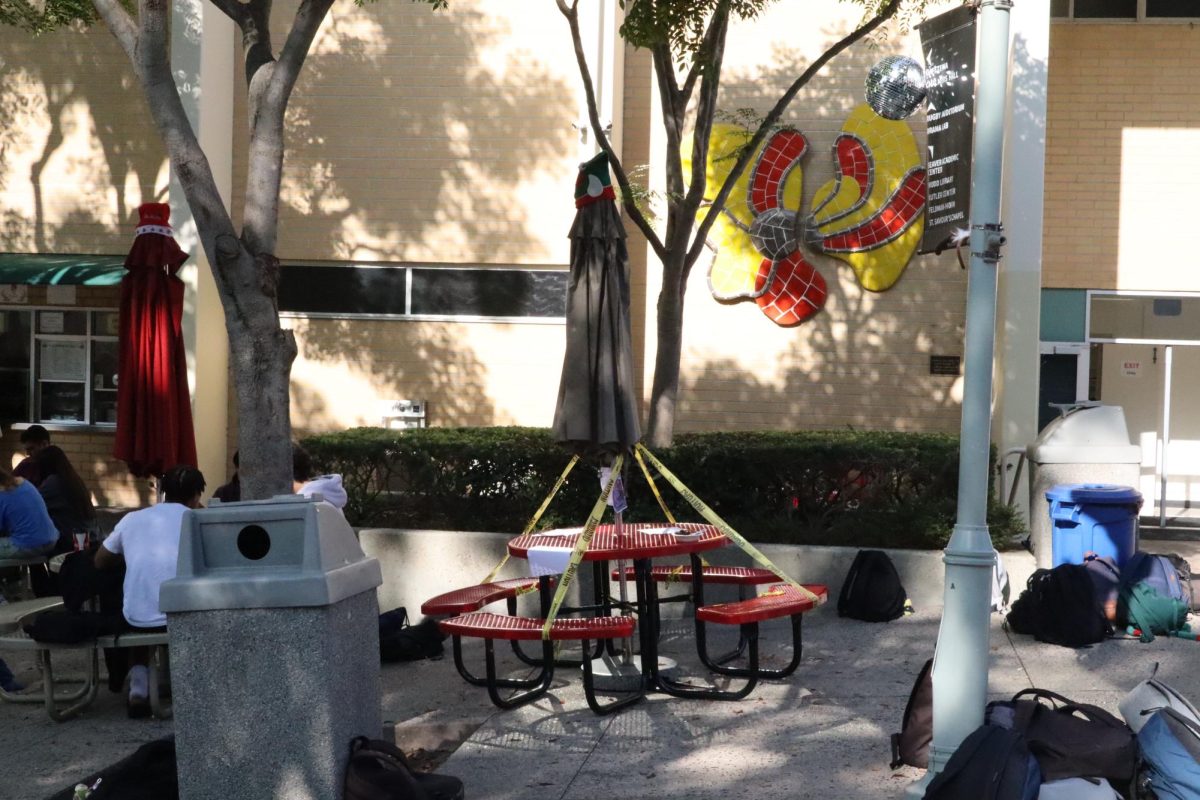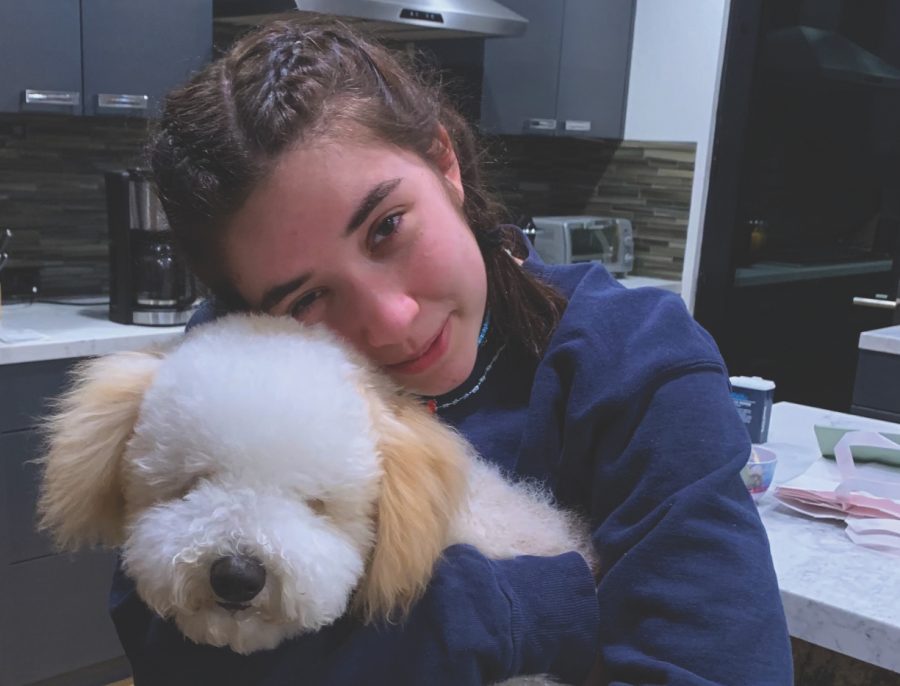Secret Life of Pets (in Quarantine)
March 27, 2021
When Olivia Rahhal ’23 returned to her house after leaving her sheepadoodle puppy home for the first time, she noticed her dog’s overly exaggerated behavior—specifically, her intense tail wagging and excited barking. Rahhal said her family used this instance as a test run because they knew they would need to leave the dog alone for prolonged periods of time after quarantine.
“Pretty clearly when we were leaving she was really sad, and we left her in her crate with some toys and treats, but she could tell we were leaving her,” Rahhal said. “When we got back after an hour or two, she was barking pretty loudly and whimpering.”
This behavior is not unusual for pets during quarantine. Ever since Governor Gavin Newsom’s stay-at-home order was put in place in mid-March of last year, pets have remained home with their owners for months on end with little breaks in between. The coronavirus has taken a large toll on the mental and physical health of individuals, according to the Centers for Disease Control and Prevention (CDC), but it is important to note what the effects will be on pets.
While the vaccine gets distributed and coronavirus cases begin to decrease, jobs and schools will open up, leaving pets home alone for the day. As adoption rates of pets in shelters, breeders and rescues have surged, so has the concern for the mental and physical health of these pets, according to ABC7 News. After getting used to their owners being home over quarantine, many pets will start to experience separation anxiety, which could include symptoms of trembling, excessive panting, destructive behavior or changes in sleep and appetite, according to an article written by the Oakland Veterinary Services (OVRS) staff.
Veterinarian Andrea Richter, who has worked at the Sherman Oaks Veterinary Group since 2015, said she thinks the job market will drastically change after quarantine and consequently, more people will stay home. For the people who do not, however, their pets will likely experience the effects of the stay-at-home order.
“Do I think that separation anxiety is going to increase?” Richter said. “100%. I am already seeing it now. I think people will start trying holistic medicines, and I eventually think that animals will be put on Prozac because it is either that or getting kicked out of their apartment. We are already seeing animals getting re-homed.”
Prozac, or fluoxetine, is an antidepressant used to treat a number of disorders and has been FDA-approved for dogs. The tablet can be given to treat behavioral problems such as the effects of separation anxiety, according to the Veterinary Centers of America Inc. (VCA), in an article written by Rania Gollakner about fluoxetine.
Students have also seen these issues of attachment while at home with their pets. Lauren LaPorta ’23 rescued a kitten in October and has made a bed for her in her room.
“If I leave my room for even 10 minutes to say ‘hi’ to my sister or go to the kitchen, I instantly hear Luna’s meowing and cries and have to call her name to let her know I’m still here,” LaPorta said. “She always gets upset when I leave her, and it will be especially hard when we go back to school because she won’t have me or my sister with her for the entire day and will probably get very lonely.”
Unfortunately, separation anxiety is not the only thing plaguing pets during quarantine. Although only a few pets have been directly affected by the virus according to the Centers for Disease Control and Prevention (CDC), quarantine has still caused a spike in a different virus: the parvovirus. This virus is spread through direct contact with an infected dog or a contaminated surface but can be prevented through a series of vaccinations. During quarantine, however, there has been a much higher demand for pets, and many have been released without taking the proper precautions, according to BluePearl Pet Hospital in Irvine. Cases of hospitalizations at BluePearl Pet increased by 70% during 2020.
“Other possible causes for the uptick include disruptions in the timing of or prevention of puppies receiving full vaccine series, resulting in incomplete immunity, and financial hardships, such as job loss, preventing or delaying owners from seeking routine vaccinations,” Blue Pearl Media said in a statement.
Jade Stanford ’22 adopted a black Labrador Retriever over quarantine. She said that because she already has a dog, the two will keep each other company. As a result, the possibility of separation anxiety is reduced, but she still foresees some issues with her ability to socialize with other pets.
“I mean, as much as I complain about her, she helps me have a routine: waking up early, playing with her during the day, walking her, putting her to sleep,” Stanford said. “She genuinely makes me so happy, like when I’m stressed or just tired, I can go play with her, and then I will be less Zoom-fatigued.”





























